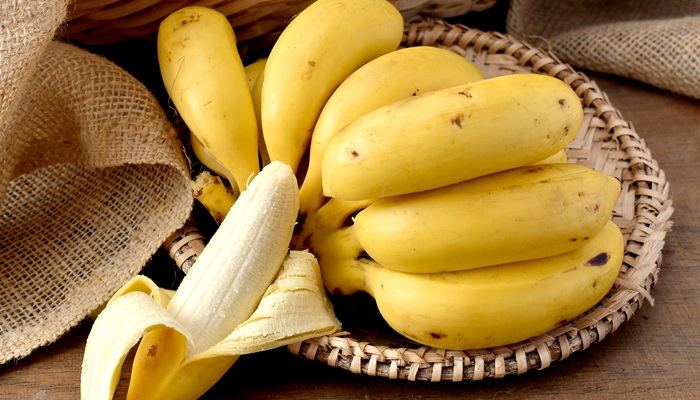Bananas are often celebrated for their versatility and nutritional benefits, but can they truly be considered an invisible guardian for kidney disease patients? This article explores the role of bananas in a kidney-friendly diet, examining their nutritional profile, potential benefits, and cultural significance. We’ll also provide some delicious recipes that incorporate bananas into daily meals, making it easier for kidney disease patients to enjoy this fruit safely.
Understanding Bananas
What is a Banana: A banana is a popular tropical fruit known for its curved shape, soft texture, and sweet flavor. It belongs to the genus Musa and comes in various sizes and colors. The most common variety, the Cavendish, has a yellow peel when ripe.
Nutritional Profile: One medium-sized banana (about 125 grams) contains approximately 105 calories, 1.3 grams of protein, 27 grams of carbohydrates including 3 grams of fiber, and 0.4 grams of fat. Bananas are rich in potassium, vitamin C, vitamin B6, magnesium, and antioxidants like dopamine and catechin. However, for kidney disease patients, the potassium content is a critical factor to consider.
Potassium and Kidney Health
Potassium plays a vital role in regulating heart rhythm, muscle function, and blood pressure. For individuals with healthy kidneys, the mineral can be beneficial. However, for those with kidney disease, the story is different:
Kidney Function: Damaged kidneys may not efficiently remove excess potassium from the body, leading to hyperkalemia or high potassium levels, which can be dangerous.
Dietary Management: Kidney disease patients must carefully monitor their potassium intake to avoid complications. While bananas are naturally high in potassium, the amount can vary depending on ripeness; less ripe bananas contain less potassium than overripe ones.
Benefits for Kidney Disease Patients
Despite the caution needed regarding potassium, bananas can offer several advantages for kidney health:
Fiber Content: Dietary fiber in bananas can support digestive health and help maintain stable blood sugar levels, which is important for overall kidney health.
Antioxidant Properties: Antioxidants found in bananas can protect against oxidative stress and inflammation, conditions that can exacerbate kidney disease.
Vitamin B6: This vitamin supports brain function and helps form red blood cells, both of which are crucial for maintaining overall health.
Incorporating Bananas into Your Diet
When integrating bananas into a kidney-friendly diet, consider these tips:
Choose smaller or less ripe bananas as they contain less potassium. Limit your portion size and frequency of consumption. Pair bananas with other low-potassium foods to balance your meal. Always consult with a healthcare provider or dietitian to tailor your diet plan based on individual needs.
Cultural Significance
Historical Context: Bananas have a long history dating back thousands of years, originating in Southeast Asia. They were introduced to Africa and then spread to the Americas via explorers and traders. Today, bananas are enjoyed worldwide and play an important role in many cultures.
Symbolism: In different cultures, bananas symbolize fertility, prosperity, and abundance. For instance, in Hindu culture, bananas are associated with the goddess of prosperity, Lakshmi. In Latin America, bananas are often part of traditional celebrations and festivals. The inclusion of bananas in meals signifies care for one’s well-being and that of loved ones.
Recipes Using Bananas
To enjoy the benefits of bananas while adhering to a kidney-friendly diet, try these simple yet flavorful recipes:
Banana Oatmeal
Ingredients
- 1/2 small banana, sliced
- 1/2 cup rolled oats
- 1 cup water or low-sodium vegetable broth
- 1 teaspoon cinnamon
- Optional toppings: a few almonds or walnuts
Instructions: Combine water or low-sodium vegetable broth, oats, and cinnamon in a saucepan and bring to a boil. Reduce heat and simmer for about 5 minutes, stirring occasionally. Add sliced bananas during the last minute of cooking. Serve hot with optional toppings.
Banana Smoothie
Ingredients
- 1/2 small banana
- 1/2 cup unsweetened almond milk
- 1/2 teaspoon vanilla extract
- 1/2 cup ice cubes
Instructions: Blend all ingredients until smooth. Pour into a glass and serve immediately.
Banana Pancakes
Ingredients
- 1 small banana, mashed
- 2 eggs
- 1/4 cup rolled oats
- 1/4 teaspoon baking powder
- Cooking spray or butter for cooking
Instructions: Mash the banana in a mixing bowl. Add the eggs, oats, and baking powder, stirring until combined. Heat a non-stick pan over medium heat and use cooking spray or butter to grease it. Spoon the batter onto the pan and cook until bubbles form on the surface. Flip and cook until golden brown. Serve with fresh berries or a drizzle of honey.
Conclusion
In conclusion, bananas can be included in the diet of kidney disease patients with careful consideration of their potassium content. By choosing smaller or less ripe bananas, limiting portions, and pairing them with low-potassium foods, individuals can enjoy the benefits of this fruit without compromising their health. Embracing the cultural heritage of bananas not only enriches our culinary experiences but also connects us to traditions that value health and wellness. Whether enjoyed as oatmeal, smoothies, or pancakes, bananas can be a tasty and nutritious choice for anyone looking to support their kidney health.
Related topics:


